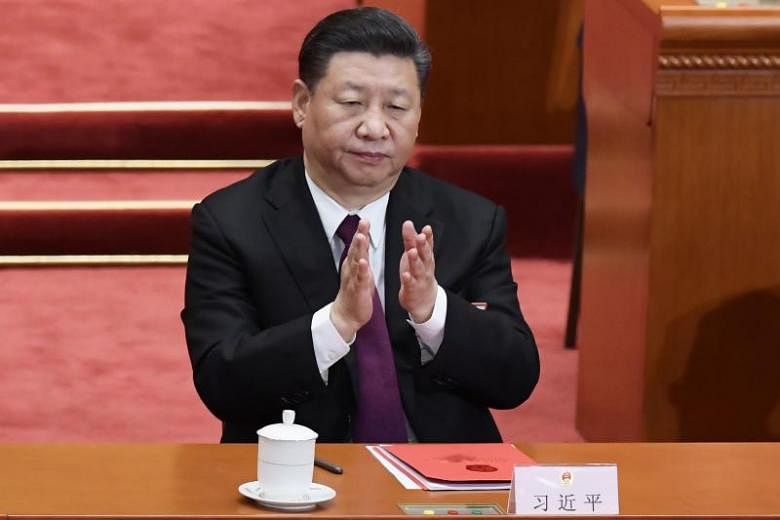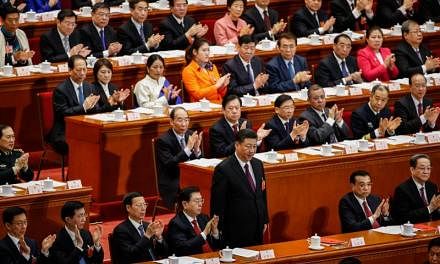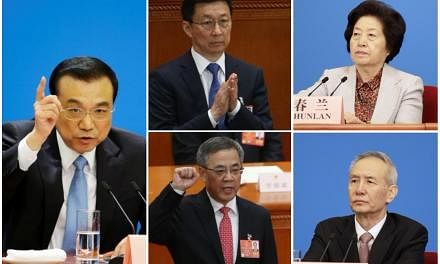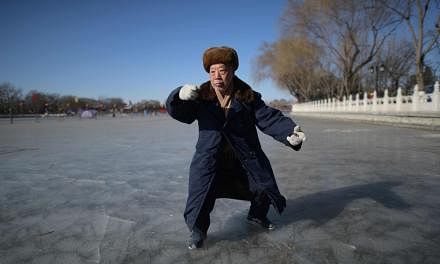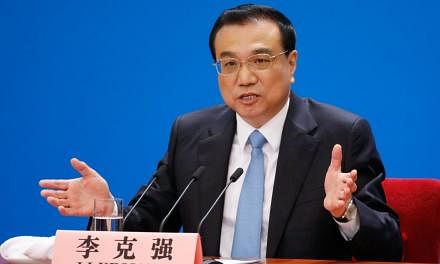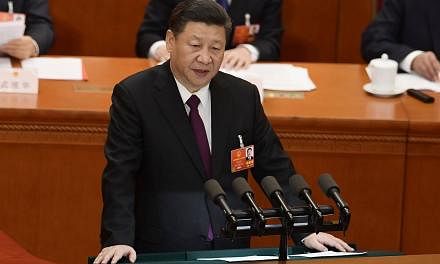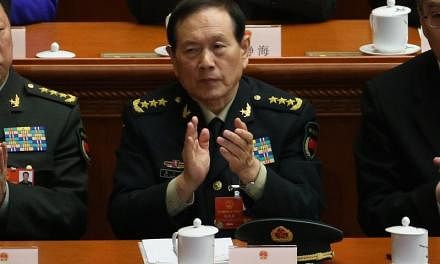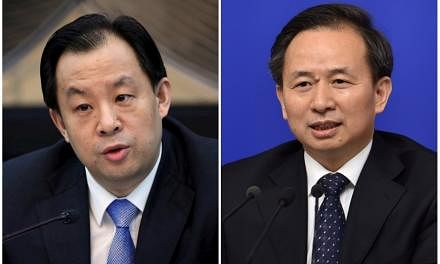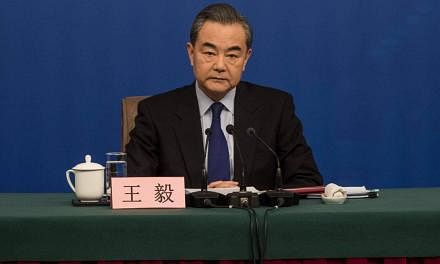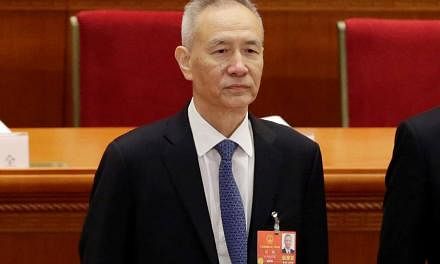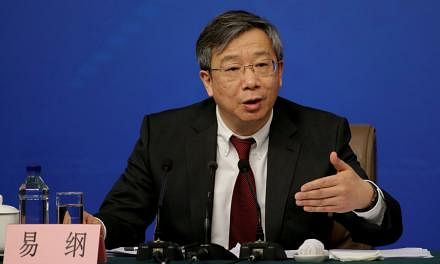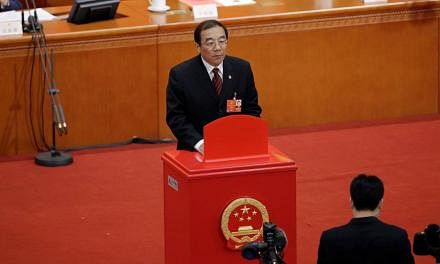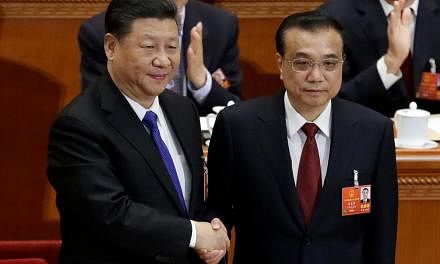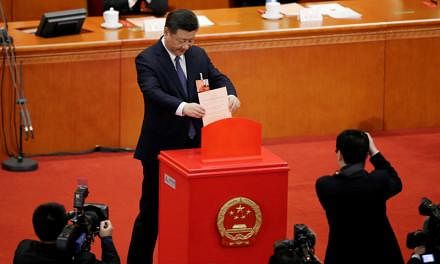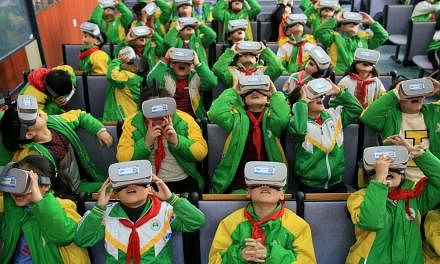BEIJING - The just-concluded Chinese parliamentary session cemented President Xi Jinping's position as the country's most powerful leader in decades, with unbridled authority to realise his long-term vision for China.
But this untrammelled power can come with risks - a more influential Beijing with Mr Xi at the centre could, among other things, sap the economic dynamism of local governments, an engine of the country's growth.
Ms Xie Yanmei, China policy analyst with research and consulting firm Gavekal Dragonomics, said this at a talk on Wednesday (March 21) organised by the Foreign Correspondents' Club of China and attended by diplomats and foreign correspondents.
Her comments come a day after the curtains came down on a historic session of the National People's Congress (NPC), or parliament.
This year's session saw lawmakers unanimously elect Mr Xi to a second presidential term and vote to amend the Constitution to scrap presidential term limits, effectively allowing Mr Xi to stay in office indefinitely.
The legislature also approved a reshuffle of the State Council, or Cabinet, to improve efficiency and reduce overlaps, and the creation of an anti-corruption agency, the National Supervisory Commission (NSC).
The NSC extends the powers of the Communist Party's internal disciplinary watchdog to also oversee state and public-sector employees who are not be party members.
Some of Mr Xi's key lieutenants were also promoted to top positions, including former anti-corruption czar Wang Qishan, who was named Vice-President.
"Any one of these items would require a lot of manoeuvring, a whole lot of political capital... (Mr Xi) managed to achieve all this in one session," Ms Xie said.
But consolidating so much power in the centre also risks stifling innovation and creating fear of criticising central policies.
Ms Xie noted that in the past, local officials, such as party secretaries or provincial governors, had "a lot of autonomy in managing growth, as long as you deliver GDP numbers".
"Localities used to be sources of policy, experimentation, innovation, now with more pressure from the top... does that mean that source of innovation and experimentation will atrophy?" she said.
But she also said that Beijing was not blind to these risks, noting how the authorities had dialled back policies that did not work well on the ground, and gave incentives to local officials to follow central directives.
For instance, it has allowed local governments to keep environmental tax revenues.
It has also stressed local discretion and autonomy. One of the constitutional amendments passed during the NPC meetings allows cities to enact local laws and regulations.
Civil society has also been selectively empowered. Environmental NGOs can now sue polluters on behalf of the public. But Ms Xie stressed that this was an exception, as these NGOs were tools used to carry out Mr Xi's agenda.
She said she did not think Mr Xi was amassing power for its sake, noting how he has a vision for China, intends to realise it, and has the support of the majority of the people.
Mr Xi has outlined his Chinese Dream for national rejuvenation that aims to transform the country into a superpower and improve the lives of its citizens.
But such concentration of power creates "key-man risk", said Ms Xie.
"The nation, the state, the party, now all rise and fall with Xi Jinping," she said.
